Lugar de fanfiction e ideas de una multifandomshipper para el mundo~
Don't wanna be here? Send us removal request.
Text
That’s me, fam
"How do you write such realistic dialogue-" I TALK TO MYSELF. I TALK TO MYSELF AND I PRETEND I AM THE ONE SAYING THE LINE. LIKE SANITY IS SLOWLY SLIPPING FROM BETWEEN MY FINGERS WITH EVERY MEASLY WORD THEY TYPE OUT. THAT IS HOW.
157K notes
·
View notes
Text
I love them so much! 🤧❤️

NieR Automata by FU JU
155 notes
·
View notes
Text
I love this kind of posts 🤧❤️ my love for the franchise just increases 💕
The themes of NieR Reincarnation
A post about the recurring elements of Drakenier and the use of branching timelines as a storytelling device. I'll be discussing spoilers for basically every DoD/NieR game.
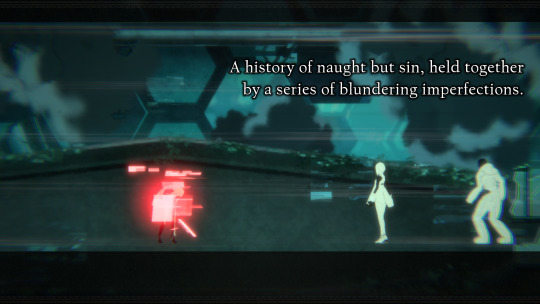
Records
A somewhat understated recurring motif of the Drakengard/NieR series is the idea of stories or memories of humanity being stored in some massive archive.
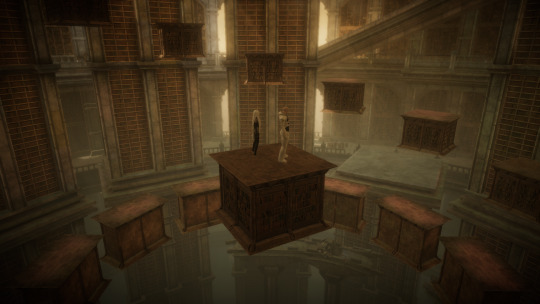
It's an idea that first entered the series in NieR Gestalt/Replicant. Early drafts of the game focused on the idea of a world built out of stories and fairytale characters, and while most of this was cut, some remained in the Forest of Myth area.
Following NieR's obsessive love of hopping between different game genres, the story here is delivered through prose/text adventure segments. There is a sense that this area of the game exists as prose, with the characters slightly aware of narration - narration which absorbs the characters until you find a way to escape. Eventually you find out - it's rather cryptic in the actual game, but spelled out explicitly in Grimoire NieR - that it's a huge computer system storing records of the deceased humanity.
In your second visit to the area, the story focuses more on distant history, that all these stories are fragments of memory of the lost pre-apocalpytic world. You encounter a Gestalt (human soul extracted from body) that is eating the memories stored in the tree, and kill it, and for Nier and co., this is enough - but for the player, you really don't know half of what is going on.
In the story The Lost World, which was adapted for the additional Ending E added in the Replicant remake, Kainé returns to the Forest of Myth and finds the computer system expanding. She fights clones of herself before eventually speaking to a mysterious administrator and descending into a virtual world that seems like a corrupted version of her memories. But she's able to connect to her memories of NieR, Emil and Grimoire Weiss, and through that connection cause a kind of timeline collapse effect that allows her to resurrect Nier. Terms from DoD3 such as 'singularity' come back again.
youtube
In NieR Automata, the idea of the legacy of humanity becomes increasingly central. While the androids believe they are reclaiming Earth for humanity, the Machine Lifeforms' motivation is in large part driven by their efforts to pore over the records of humanity and learn how to evolve their condition, even by blind imitation. Many of the different Machine Lifeforms you encounter are shaped by their interpretations of human society. The motif of human buildings recreated in white blocks recurs at certain points.
In the final sequence of the game, you climb a tower, and inside it visit simulacra of locations from the Replicant/Gestalt. You learn that the machines have infiltrated the androids' network and downloaded basically all the information the androids have, including all their records of humanity. When the machines' 'Ark' is launched into space, it carries their memories and consciousness in data form.
The YoRHa: Dark Apocalypse raid series in FFXIV continues this idea of obsessive, blind reconstruction. The machines you fight here are now all the more explicitly connected to the apocalyptic shit in DoD; they have also been frantically creating duplicates of YoRHa android 2P, the Bunker and so on in corrupted form. Although the story here has mostly other interests, it's another recurrence of the idea of trying to recreate things that were lost.
Along with this idea of the archive comes the idea of preservation of that archive. Whether by accident or deliberate attack, the survival of the archive is not guaranteed.
This is all absolutely central to what Reincarnation is about.
Branches
The Drakenier series has played around with branching narratives pretty much from the start. It's somewhat infamous for it in fact - did you know that NieR is actually a spinoff of ending E of Drakengard, the one where you appear over Tokyo and have to do a rhythm game? Yeah, so...
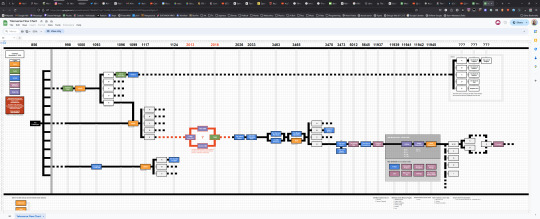
Most games are fairly cagey (ha ha) about the mechanics of these branches. Indeed, although we speak of branches, the structure of these games is not really a branching one like a visual novel. The branches and 'endings' are usually unlocked sequentially.
Drakengard/Drag-on Dragoon (DoD1) is probably the closest you get to a traditional branching structure. You can unlock routes in certain missions by fulfilling certain conditions. The exact logic of these branches is not really explained - you can go back to a point before you recruit a party member and get a different branch where they're present for example. That said, it's not like a visual novel where you can be 'on' one branch or another - you can always jump to any level from any timeline.
This oddness of the branches is also lampshaded a little more in DoD3, the game that is most explicit about the nature of the branching timeline. DoD3 is, from the player perspective, a linear game. After you complete the first 'ending', you unlock new levels that appear at earlier points in the timeline, and diverging branches appear. In the later branches, the logic of the world is starting to break down. Party members who you'd recruit later in the story are in your party much earlier, in some cases suffering from amnesia, the implication being that it's an effect of the Flower's corruption.
The game is intermittently narrated by a character called Accord, an android 'Recorder' whose job is to document all the different versions of the story for an unknown party. Accord isn't supposed to intervene in the story, though she occasionally talks to protagonist Zero, and in the final D route, she decides to break the rules and save Zero. Otherwise, she's responsible for 'sealing' branches where it seems the world cannot be saved.
This is Accord:
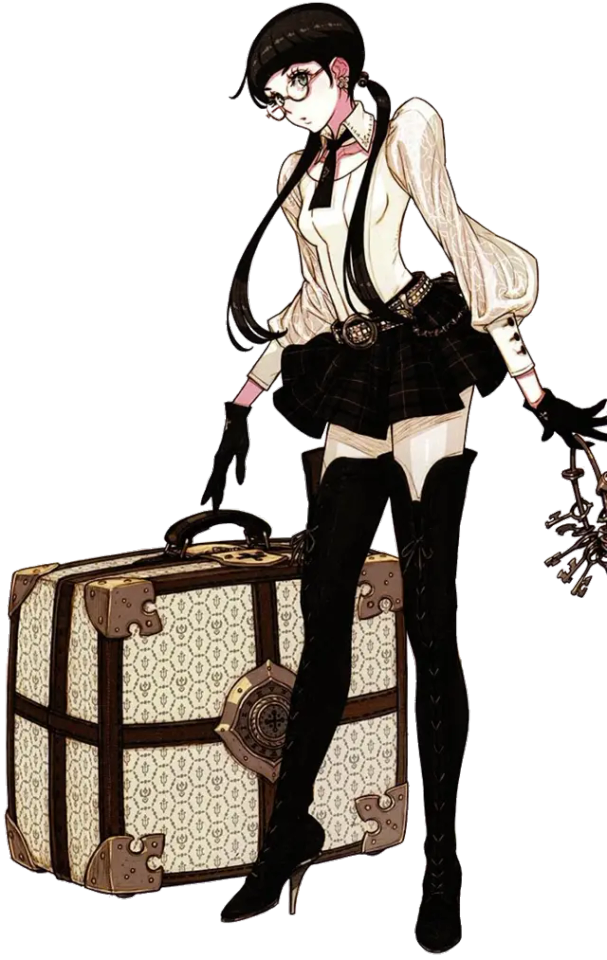
The final cutscene of DoD3, available only after you beat the ludicrously difficult rhythm game that is the 'final song', shows a bunch of other Accords appearing and talking about what a mess this all is.
Accord's other role in the game is to sell weapons. Another series tradition running back to DoD1 is the 'Weapon Stories'. In each game, you can collect weapons, which can be upgraded through a series of four stages. Each stage unlocks another part of a story. These stories tend to be quite brief - each entry is at most a short paragraph. They also, particularly in the DoD games, tend to be comically grimdark.
DoD 3 came out after NieR Replicant/Gestalt, but in every game since then, there have been cryptic mentions of Accord. In Automata she's mentioned in a note as a weapons seller; in the updated version of Replicant she is mentioned as visiting Nier's village while the party is away on her adventures, and you see a documention that mentions the 'Accord Corporation' supplying magic weapons.
OK, so, put a pin in that, we'll come back to her later.
The side material commits further to the branching idea. The original Drakengard is established to follow from the DoD3 Story Side novel, while Branch A gives rise to the Shi ni Itaru Aka manga and the DoD 1.3 novel. The YoRHa stage plays spawned alternative versions, namely YoRHa version 1.3a and Shōjo YoRha version 1.1a, with the gender of the casts flipped. YoRHa 1.3a also has Accord in it. The anime NieR Automata ver. 1.1a also presents an increasingly diverging version of the events of the game - notably, Adam turns into a multi-armed monster.
DoD2, something of the black sheep of the franchise, was originally written to follow DoD1 ending A; later it was retconned to belong to its own branch. Just 'cause.
With me so far? ...no? Yeah, that's fair. You can read about all the details I've gathered so far here, but in short, there are lots of timeline branches, and multiple versions of several stories with small or large divergences.
Reincarnation
NieR Re[in]carnation is a gacha game that's been running for the last three years, and is going to be shut down at the end of April. At the time it came out, it was acknowledge for having unusually nice graphics for a mobile game, but rather desultory, grindy, repetitive gameplay. Which remained true throughout the game's life, so I can't exactly recommend playing Reincarnation, especially at this point.
But! I would definitely say it's worth your time to dig up the story on Youtube/Accord's Library if you're into NieR stuff. I won't be going into all the ins and outs of the story and how it all fits together in this post, but I am gonna talk about how it's structured.
NieR Reincarnation places you in a vast stone city called the Cage, calling to mind the environments in Ico. At the outset, you play as a young girl travelling with a weird ghost-like creature called Mama, tasked with restoring the memories stored in objects called 'dark scarecrows' which are being subverted and corrupted by black birds which form into various monsters.
Within each chapter of NieR Reincarnation, you get a short story in four parts, presented in a kind of cutout style, which are the four segments of a weapon story. You collect the weapon and the character.
The Cage is shaped by the content of the weapon stories somehow bleeding into the simulated setting. A character's memories can be used to restore the stories to their proper course. It is possible to interfere in small ways with the worlds of the stories.
The corruption of the stories tends to involve subverting characterisation to make them crueller, more prone to random violence etc. - or points when a character could be threatened in a narratively unsatisfying way. For example, a peace-loving runaway prince could be turned into a warlike king.
Over the course of the first arc, you discover that the girl you are playing is actually a monster who has taken the form of a human girl and, regretting it, wants to give her her embodiment back. The second half of the arc has you playing the girl trying to reunite with her monster friend; at the end, you get her own backstory as a victim of brutal prejudice. After all is said and done, both characters transform into weapons, which Mama picks up and hides away.
The second arc, The Sun and the Moon, deals with a brother and sister from present-day Tokyo. Both of them have been transported into the Cage by more of the weird ghost thingies, to participate in a strange ritual that is allegedly going to restore the Cage. The rules are highly mystical - a significant sacrifice is needed.
In the most recent arc, The People and The World, the characters all emerge from their stories as the Cage becomes increasingly corrupted. We finally get the long awaited point where these characters can interact with each other, and advance the stories from a series of tragic vignettes to something more. At the same time, we get a lot more allusions to other games in the series - from the Lunar Tear room where Emil memorialised Kainé and later 9S memorialises 2B, to a brief appearance Devola and Popola.
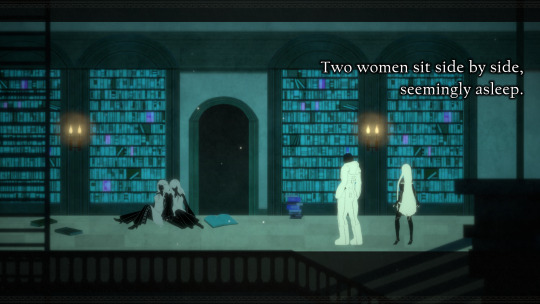
There's even a nod to Yoko Taro's other terminated gacha game, SINoALICE, which is going to be made into a movie oddly enough. There's a wry nod to the game being shut down.
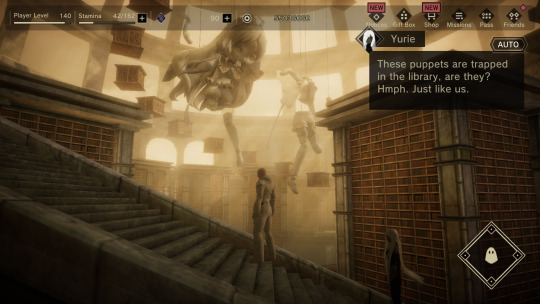
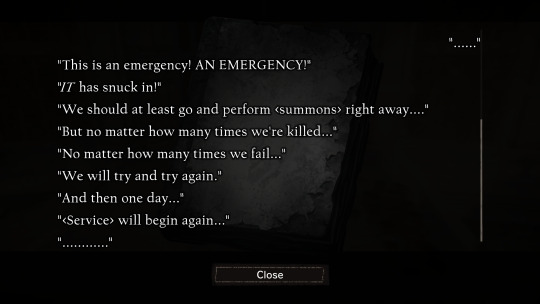
And in the most recent chapters we find out that the Cage is actually a server on the moon containing records of humanity - 10H from A Much Too Silent Sea is one of the main characters. 'Mama' is actually the Pod tasked with overseeing the archive, and wiping 10H's memories whenever she learns too much - though it seems at some point 10H learned the truth and affirmed that she'd protect the archive anyway and they stopped wiping her memory.
Over the course of the chapter, 10H helps the gang make their escape from the moon through the androids network, to Earth. But when they get to Earth, they find themselves in a strange white city more resembling the Cage.
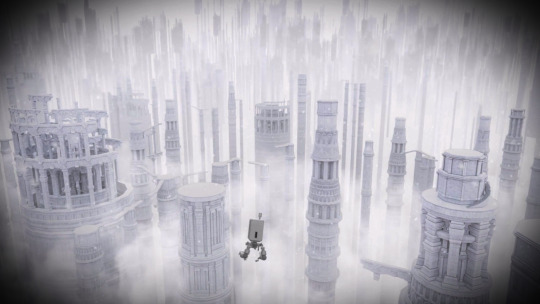
We'll finally get some answers, maybe, later this month. Anyway...
So, these records come from multiple diverging timelines, and they take the form of weapon stories. You have a unity of the ideas of character - weapon - memory - world. A record is simultaneously a tragic series of events, a person who can manifest inside the Cage itself, a simulated world which other people can visit, and a weapon.
In addition to the main storyline chapters and 'character stories', each character is associated with two additional 'EX' storylines, termed Dark Memories and Recollections of Dusk. Each one is a much more substantial narrative than most in the game.
Some of these EX stories clearly take place in different timelines to the first ones we encounter. Akeha's story, for example, takes place after her death in the original version. For the brother and sister from the Sun and the Moon arc, originally from present-day Tokyo, their Dark Memories take place in the backstory to NieR Gestalt/Replicant - the period where humanity is dying out to White Chlorination Syndrome and fighting monsters called the Legion. In this one, before the siblings could be torn apart by family drama and resentment, the apocalypse happens. Both of them end up coming into their own as heroic fighters. In the finale arc, the characters learn a bit about these alter egos, and it's made very explicit that this is a different timeline.
The monster Levania's Dark Memory is especially weird. It's the story of a salaryman who plays a monster called Levania in an MMORPG. His MMO character inspires him to live more bravely in the real world, and his life seems to be improving, but he is murdered by a jealous coworker. He wishes for reincarnation as he dies - classic isekai stuff. But the connection to the Levania you encounter in the main story is far from clear. Are all versions of Levania derived essentially from this man's tulpa?
The nature of the 'enemies' attacking the Cage is still not yet clear. They take the form of black birds. The birds are given a small amount of dialogue and characterisation, and they seem to not be malicious, just confused. The girl from the first arc in particular tends to interact with them sympathetically. However, they seem to be connected with the mysterious 'God' who was trying to destroy the world in DoD1, and the Angels and Flower of DoD3.
The birds are able to gathe together to manifest much larger monsters, the largest being giant elk and fish called Cursed Gods. During the finale arc, one of these becomes something that resembles the Mother Angel from DoD1 - and yes, there is a rhythm game - though mercifully a pretty easy one.
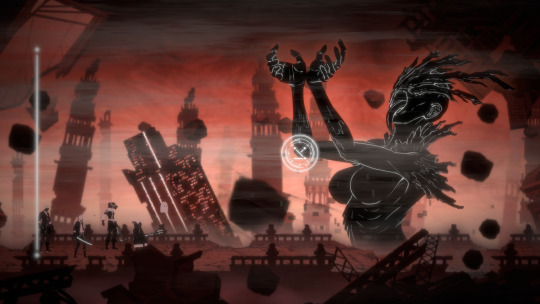
In the same arc, the character Yurie, an AI city overlord with grandiose ambitions and a loathing of imperfection attempts to download the entire history of humanity from the Cage and become a more perfect being. She succeeds, only to find the answers disappointing...
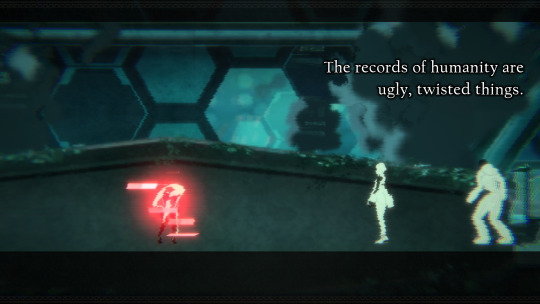

This is perhaps the closest thing we ever get to an explicit statement of what all these stories and histories add up to, but despite all this, the throughline is very strongly that these stories are essential to preserve. NieR characters exist in small groups, and it is their intense connections to these others, their treasured memories of travelling together, that motivate them to fight to preserve that thing, even if the results are destructive.
Similar themes emerge for example in Noelle's Recollection of Dusk story, which sees her travelling to preserve a place valued by her sister in crystal. And they also connect to the theme of sacrifice - the recurring ending device where the player must delete their save data in order to help someone (something echoed in Hina and Yuzuki at the altar of the sun and moon, or Levania and Fio). It's perhaps fair to say that nothing is more valued in the world of Nier than memories of a treasured person.
What about Accord? She has in fact made a brief cameo in Reincarnation already...
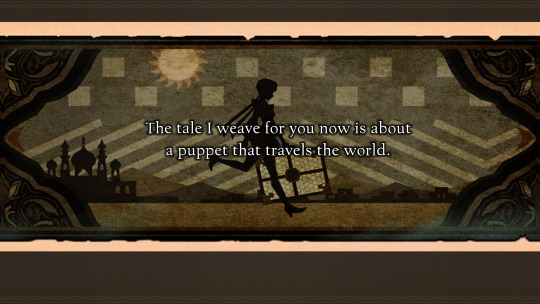
It seems incredibly likely that Accord originates from the Cage, and the accumulation of weapon stories is accomplished by androids like her. Definitely in the fandom there's a lot of excitement for the idea that Accord - something of a fan favourite - will show up at Reincarnation's ending.
So mystery solved, the Cage exists in the world of NieR Automata on the moon server? Not so fast - there are various discrepancies which seem to suggest that the world of the Cage exists in a separate branch than the one we see in Automata. For example, the androids are aware that the humans are dead and what remains on the moon is a huge archive of their memories; the humans seem to have survived much longer; 2B and 9S seem to have died in different circumstances. There are other oddities which fans have compiled.
And yet, despite being a divergent timeline with a much older point of divergence, some things seem to be fixed. There is still a YoRHa, still a 10H deceived about being on the moon, still a 2B and 9S.
One popular fan theory is that Reincarnation belongs to the NieR Automata anime (ver1.1a), since Adam turns into a monster there similar to the ones in Reincarnation. The black birds are reasoned to be the Machine Lifeforms, since we know they come from Earth. I'm not 100% sure of this, but maybe?
Anyway, that's basically the gist of it.
A story told through permutations
In many fictional series with a shared universe, there is an effort to maintain a consistent shared universe, so all the different events can fit into a timeline with understandable cause and effect and characters living out their lives. Even when this proves impossibly unwieldy, as in comic books or Star Wars, the attempt is made.
NieR does not really take this approach. The creators leave many details of the world, such as place names, incredibly vague - the focus is always on telling an emotional story with characters. There is, as we've seen, an almost gleeful willingness to declare another new timeline.
There is also a certain aspect of repetition, or more kindly reiteration - the same core character dynamic revisited and retold in various forms. (2B9S gets the worst of it). A character is something like a principle or ideal, and each story shines another light on that 'core'. In the earlier storylines of Reincarnation, it became quite frustrating because it seemed like e.g. the character event stories were just rehashing the same idea rather than advance the story.
However, the more accustomed I get to this style of storyline, the more I think this kinda works. It is of course quite similar to the ideas proposed towards the end of Homestuck, or to time loop stories - the idea of varying the contingent circumstances to try to better illustrate the core characterisations and dynamics.
Yoko Taro has talked about how he constructs stories from a very simple idea, typically a moment of high emotional impact at the climax, and then works backwards to figure out what sort of story could lead into that. In Reincarnation, each character gets fairly limited time to establish themselves, so they tend to be defined in terms of a pretty narrow high concept.
For example, Akeha is an assassin in a vague historical Japanese setting; her introductory story sees her decide for the first time to disobey her lord after she finds another person who has been treated as instrumentally as her. Most Akeha stories focus on her assassinations, her relationship to her retainer, and what she sacrifices to perform the duty. Only her Dark Memory lets us see an Akeha who has escaped that life - it's a simple story about preparing food, but that's given meaning by all the other Akeha stories.
Hina and Yuzuki are defined by the same traits in their flashy scifi Dark Memory stories as in the more mundane ones - Yuzuki the quiet outcast, Hina the self-sacrificing star. Fio is defined by kindness in the context of abjection, seeing the good in monsters. Levania stories are about the desire for escape and transformation. Argo is always a shitty dad who only feels alive while climbing mountains.
The staticness of these characters seems on some level to be the point - in that we are told in Hina and Yuzuki's story that the mechanism of the Cage is to sort characters into 'Light' and 'Dark' natures, and push them to inevitable conflict, even if they try to break free. In the final arc, the characters seem to finally approach some resolution as they leave their contexts behind. Given the themes of Automata in rejecting an inevitable tragic fate, similar movement may be at work. There's an ambiguity - the need to hold on to even tragic histories, vs the wish to not be confined to them. (Perhaps it's significant that it's called the Cage...)
With so many balls in the air and so many mysteries still unanswered, it's hard to figure out how Reincarnation can deliver a satisfying resolution in just one remaining chapter, but the final arc has been really cooking so who knows! But I'm also coming to appreciate it as a kind of broader lens to notice all these recurring elements and tie them together.
Stories about alternate timelines and branching narratives are very common nowadays, particularly as a tool for revisiting a nostalgic franchise. Something something effect of the fan wiki era. So I can't exactly say NieR is doing something completely unique, but I do think there is something to its fragmented, collage-like approach to putting together story elements. There's something quite honest about it - an ability to say 'these details aren't important'.
Yoko Taro always talks about himself as an entertainer rather than an artist. And probably it is true that a lot of this eemerged from an iterative design process rather than being the plan from the beginning (the first draft of NieR envisioned it as something closer to what SINoALICE ended up being, about a world of fairytale characters; NieR Automata began life as backstory for an idol project). There's definitely a strong sense that it's being improvised. And yet despite that, it does feel like it is cohering into some sort of picture, that there is an artistic throughline to all this.
Or perhaps that's just the effect of getting way too invested in something. I won't deny that NieR brings out the fan in me.
Anyway Accord had better show up next month. Guys. You've been teasing us for so long...
211 notes
·
View notes
Text
OMG! I love this! ❤️❤️
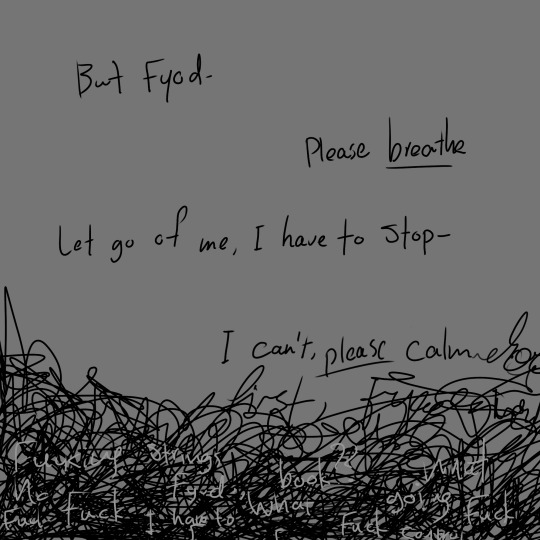
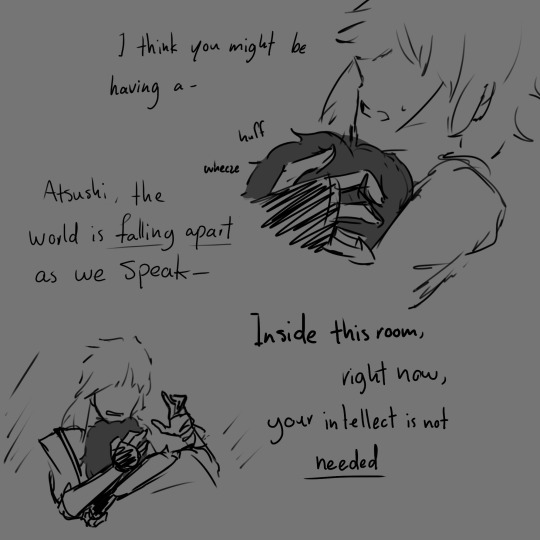
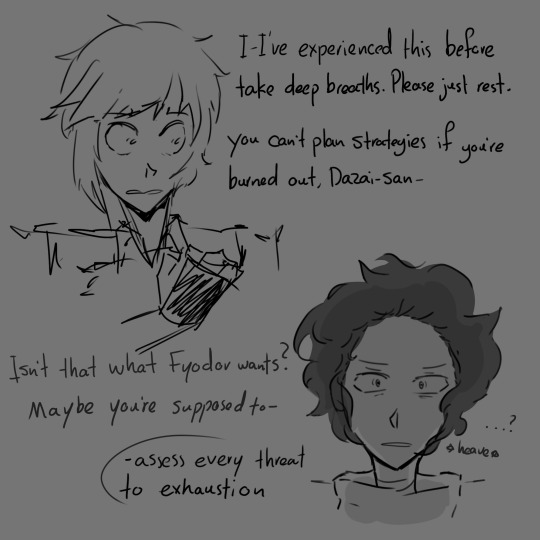
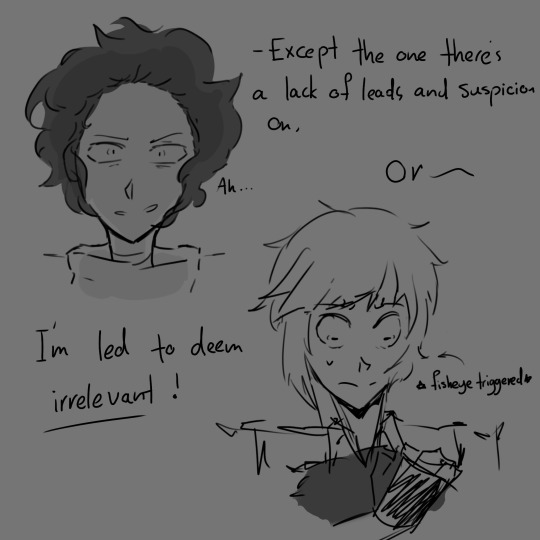
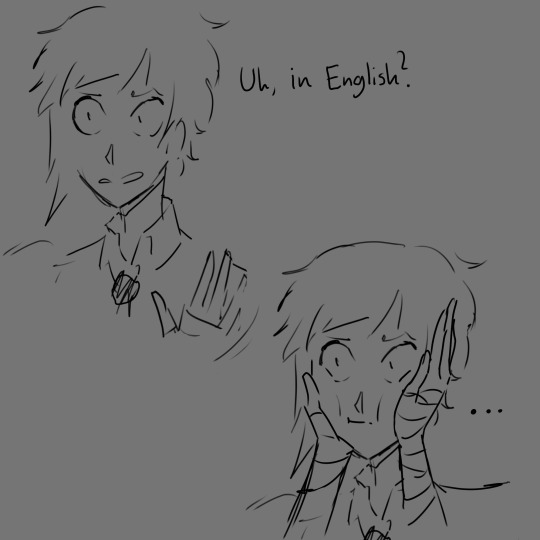
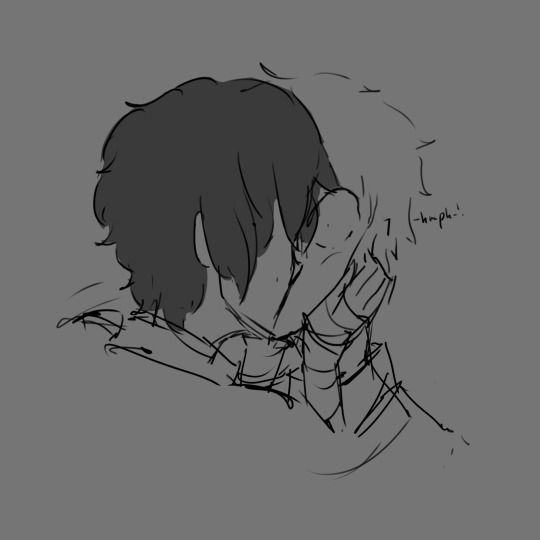
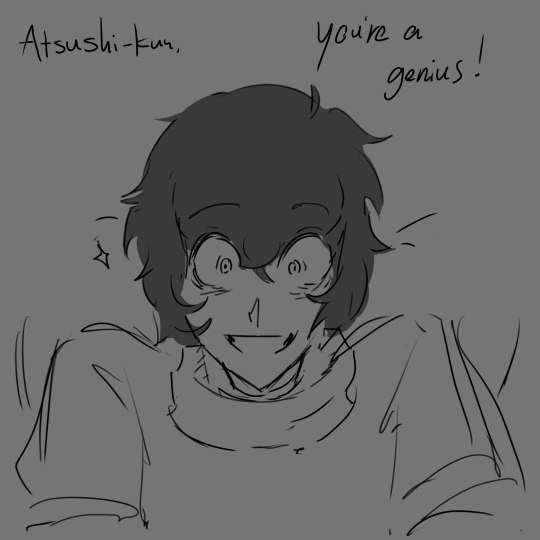
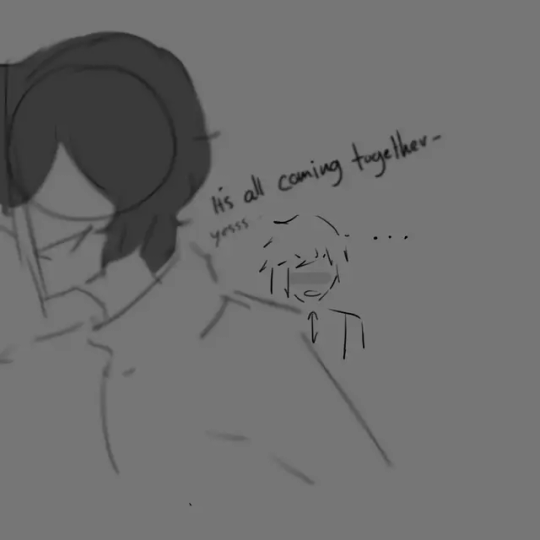
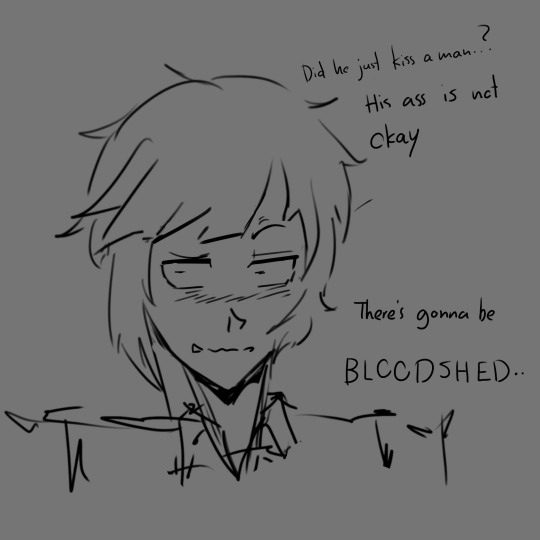
(They had a disgusting makeout session after defeating Fyodor trust)
Maybe the most crackish dazatsu angst comfort you'll see this week
230 notes
·
View notes
Text
OMG! ❤️❤️ It’s so cute!
Prepare for trouble! >:D
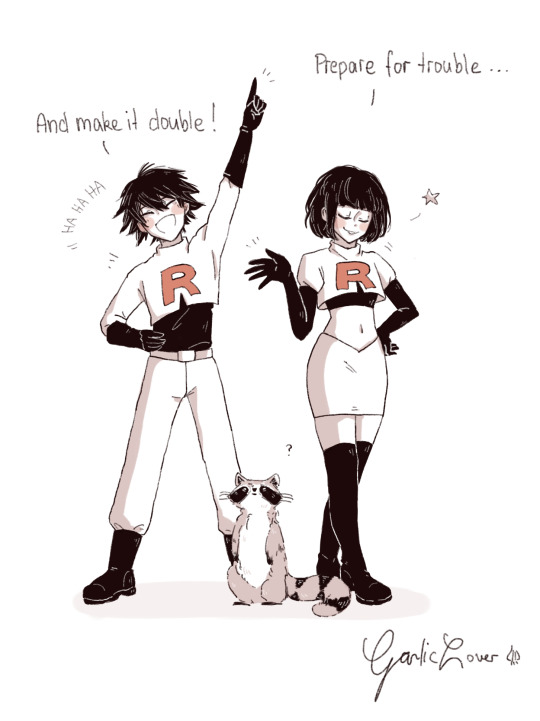
Poe: I haven't seen Karl in a while...
7K notes
·
View notes
Text
Awwww 😍😍

when your wife finds out about all the chaos and destruction you caused while she was gone
3K notes
·
View notes
Text
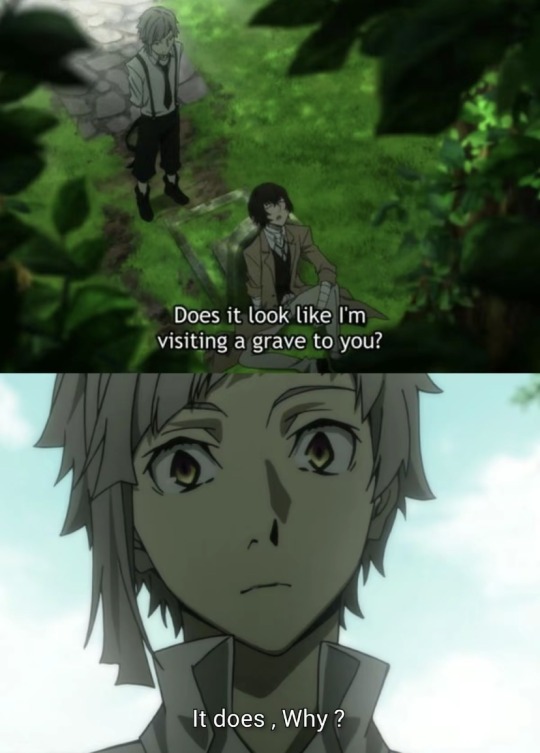
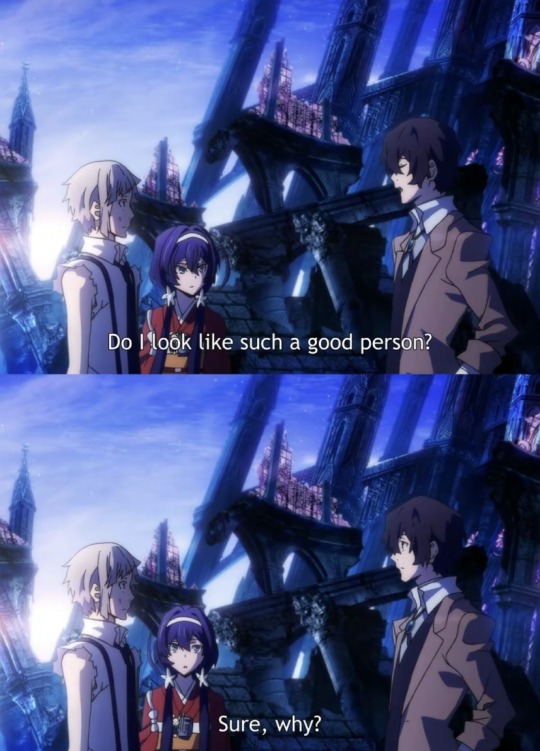
Dazai: Self deprecating comment that asserts his own bias that he is not good/human and therefore his actions are to be questioned
Atsushi: Immediate empathetic response because he’s never questioned Dazai’s goodness/humanity
—
This is Dazai being surprised that Atsushi does not view him as the inhuman, removed identity that he portrayed for so long. Atsushi does not see Dazai the way himself and many others have always viewed him. Because of this, Atsushi has been able to reach Dazai in ways that nobody ever really has before.
1K notes
·
View notes
Photo
Such cuties 😍❤️❤️


(praying emoji)
514 notes
·
View notes
Text
Byakko

Comisión a Kler Draws
Les presento a Byakko mamá de Atsushi en mi fic "No me sueltes" y la Diosa de la Luna en ese universo uwu
Ella es un personaje importante para mi historia y casi lloro cuando Kler me entregó la pieza terminada TuT
¡Enamórense conmigo!
Aquí el Post del fic por si quieren revisar la info antes de adentrarse en él.
10 notes
·
View notes
Text
No me sueltes

Pareja: Dazai x Atsushi
Advertencias: AU!Canon-divergente, viaje en el tiempo, Dark era, Amor, depresión, pensamientos suicidas, problemas con el autoestima, autodesprecio, negligencia infantil, Hurt/Confort, comprensión de sentimientos, age swap, Dazai usa el Libro, sexo con un menor, post temporada 5, celos, malentendidos, comportamiento posesivo, primer beso, fluff y angst, fluff doméstico, palacios mentales, pérdida de memoria, enamorándose, lenguaje de las flores, Personajes originales (OC), mitología y folclor japonés, sexo oral, masturbación, cambio (frecuente) de POV, violencia canónica, consumo de alcohol por menores, ataques de pánico,...
Tipo: Long Fic
Capítulos: ??
Sinopsis:
En la última batalla por el Libro, Dazai lo obtiene tal como estaba planeado. Sin embargo, en vez de escribir para desaparecer la criatura dejada por La Decandecia, decide mandar al pasado a Atsushi. Ocho años atrás, para ser precisos. Atsushi Nakajima conocerá a un Osamu Dazai de catorce años y tendrá que buscar la manera de evitar catástrofes, sin importar el precio a pagar.
Links
AO3
<- Back BSD
Masterlist
#fanfic#anime#bsd#bungou stray dogs#dazai x atsushi#bsd dazai#dazatsu#atsushi nakajima#bsd atsushi#dazai osamu#bl yaoi#bl#yaoi
0 notes
Text
Dragones en limerencia
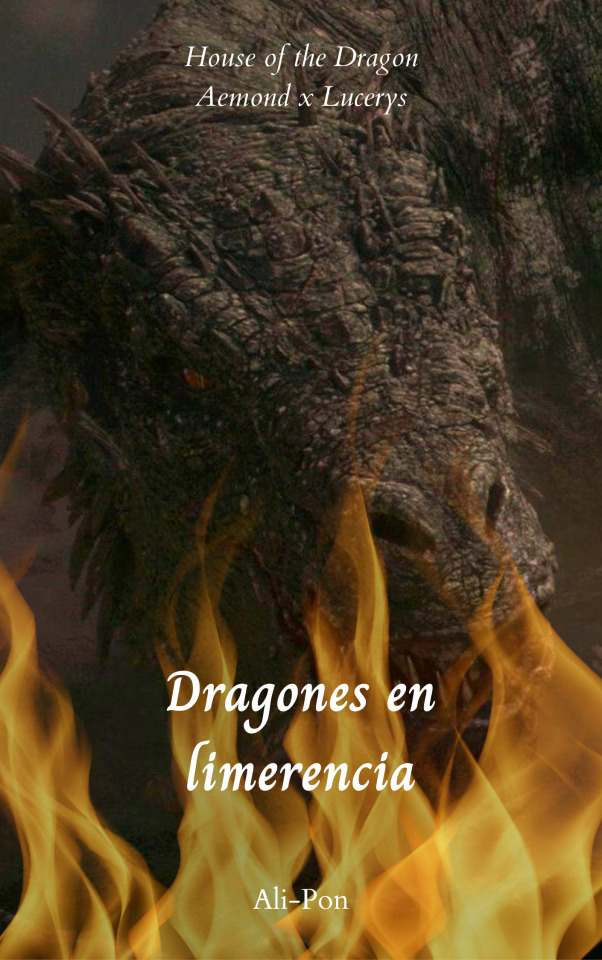
Pareja: Aemond Targaryen x Lucerys Velaryon
Advertencias: AU!Canon-Divergente, vínculo de almas, intersex y bottom Lucerys, Top!Aemond, Lactación masculina, Kink de lactación, mención de Mpreg, cunnilingus, sexo emocional, fluff y smut, Aemond posesivo, un poco de feminización, personajes mayores de edad, OoC
Tipo: One Shot
Palabras: 3161
Sinopsis:
Aemond Targaryen, al ser el segundo hijo varón del entonces rey Viserys I, nunca ha tenido nada que pueda considerar suyo. Pero todo cambia la noche que reclama a Vaghar en Marcaderiva. Pierde el ojo izquierdo a mano de su sobrino Lucerys Velaryon y a la vez obtiene algo que todo el mundo codiciaría, su Sangre Flameante (para la Antigua Valyria) o Alma Sagrada (para la Fe de los Siete) o Raíz de Arciano (para el Norte). Ambos se casan después de varios años y hasta se vuelven padre al segundo año de su matrimonio. Sin embargo, cuatro veces al año, Lucerys entra en un estado al que denominaron "frenesí", en el cual el joven es más fértil y dócil. Aemond gusta mucho de ello pues sus fantasías son complacidas, una de ellas beber de la sabrosa leche producida por su amado Luke.
Links
AO3 Wattpad
<- Back GOT/HOD
Masterlist
#fanfic#game of thrones#house of the dragon#got#hotd#aemond targaryen#hotd aemond#lucerys velaryon#aemond x lucerys#yaoi#bl yaoi
6 notes
·
View notes
Text
El arrebol de la muerte

Pareja: Daemon Targaryen x Rhaenyra Targaryen
Advertencias: AU!Viaje en el tiempo, estudio de personaje, POV!Daemon, Emotional Hurt/Confort
Tipo: One Shot
Palabras: 1687
Sinopsis:
Daemon recibe la carta de Rhaenyra en el que se le acusa de traición, sin embargo, él tiene una misión y es enfrentar al enemigo más peligroso: Aemond Targaryen. Es así que Daemon, con el corazón roto, encara a lomos de Caraxes a Aemond el Matasangre. Él cree morir, pero el Panteón tiene otra idea.
Links
AO3 Wattpad
<- Back GOT/HOD
Masterlist
#fanfic#game of thrones#house of the dragon#got#hotd#daemon targaryen#rhaenyra targaryen#daemon x rhaenyra
2 notes
·
View notes
Photo
One of my favorite ships 😍💖

暗殺 by さる ※Permission to upload granted by artist. Do not repost/edit. Don’t forget to bookmark & rate!
696 notes
·
View notes
Text
I mean… this is not subtle 👀
The bandaged man of mystery is just Dazai running from work (literally) and flirting with Atsushi. Let me demonstrate


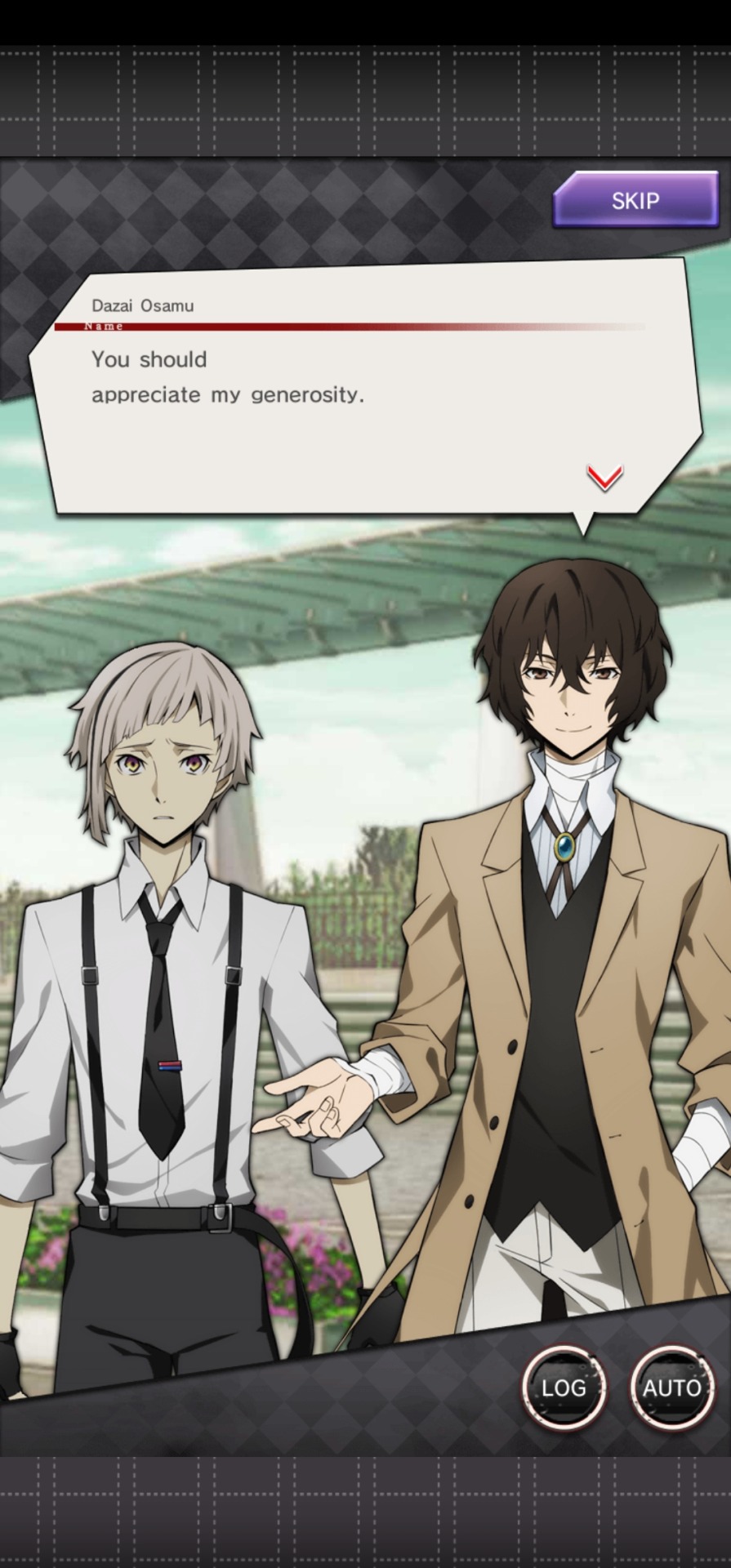

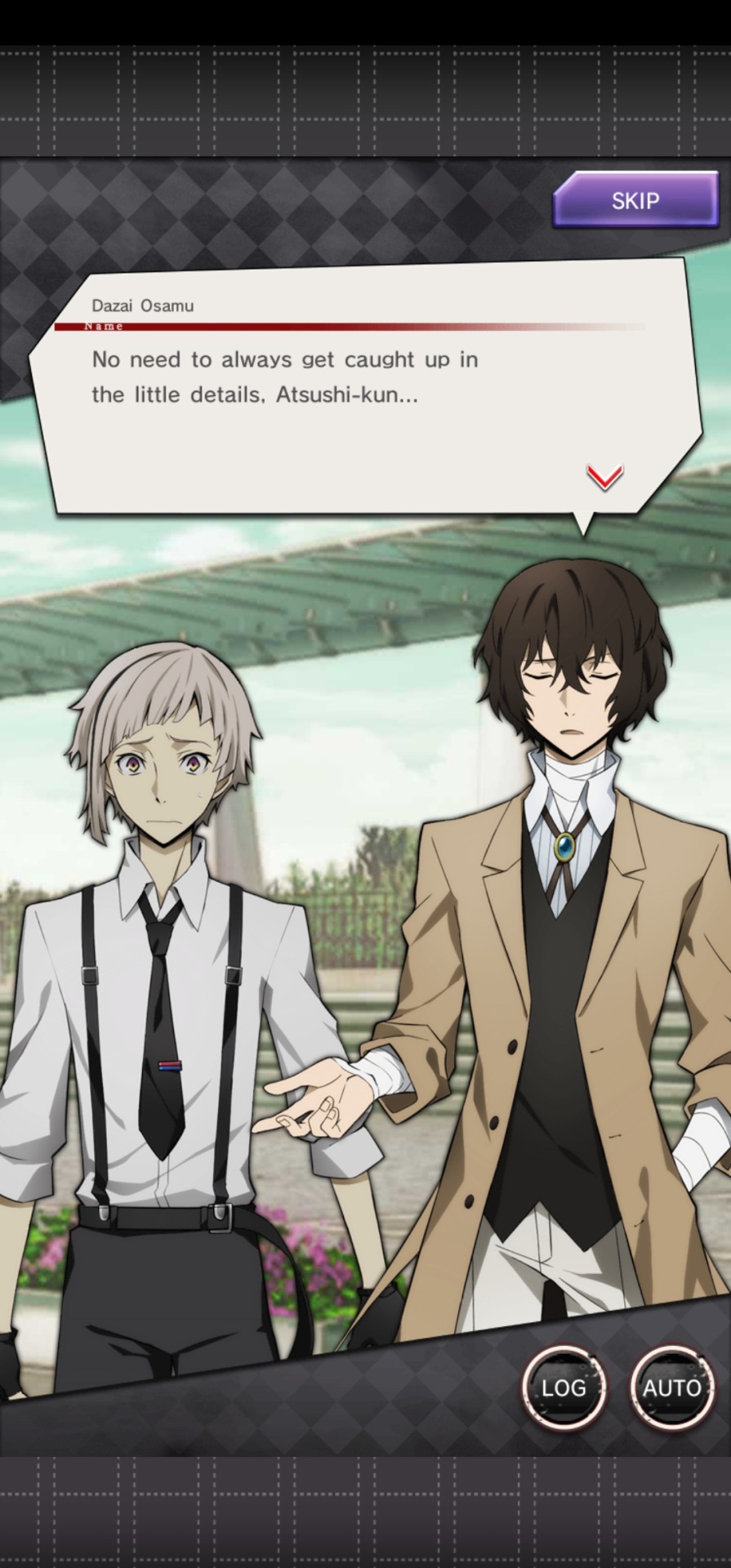


DAZAI THIS IS A DATE YOU'RE DESCRIBING. WHAT DO YOU MEAN YOU'LL BUY HIM A DRINK
And the bastard keeps talking about a double suicide. look. at .this
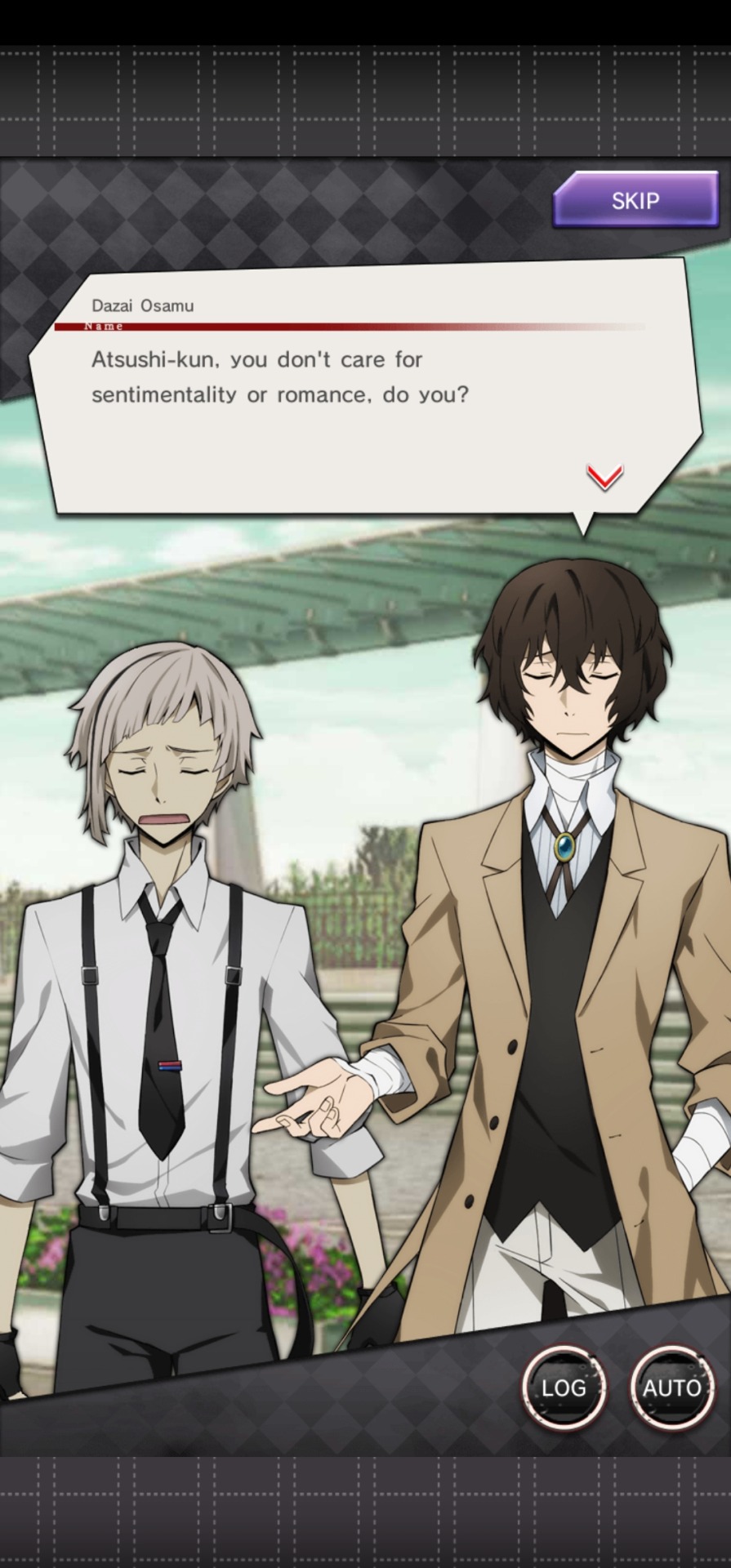

And it turns out Dazai wasn't running from work after all

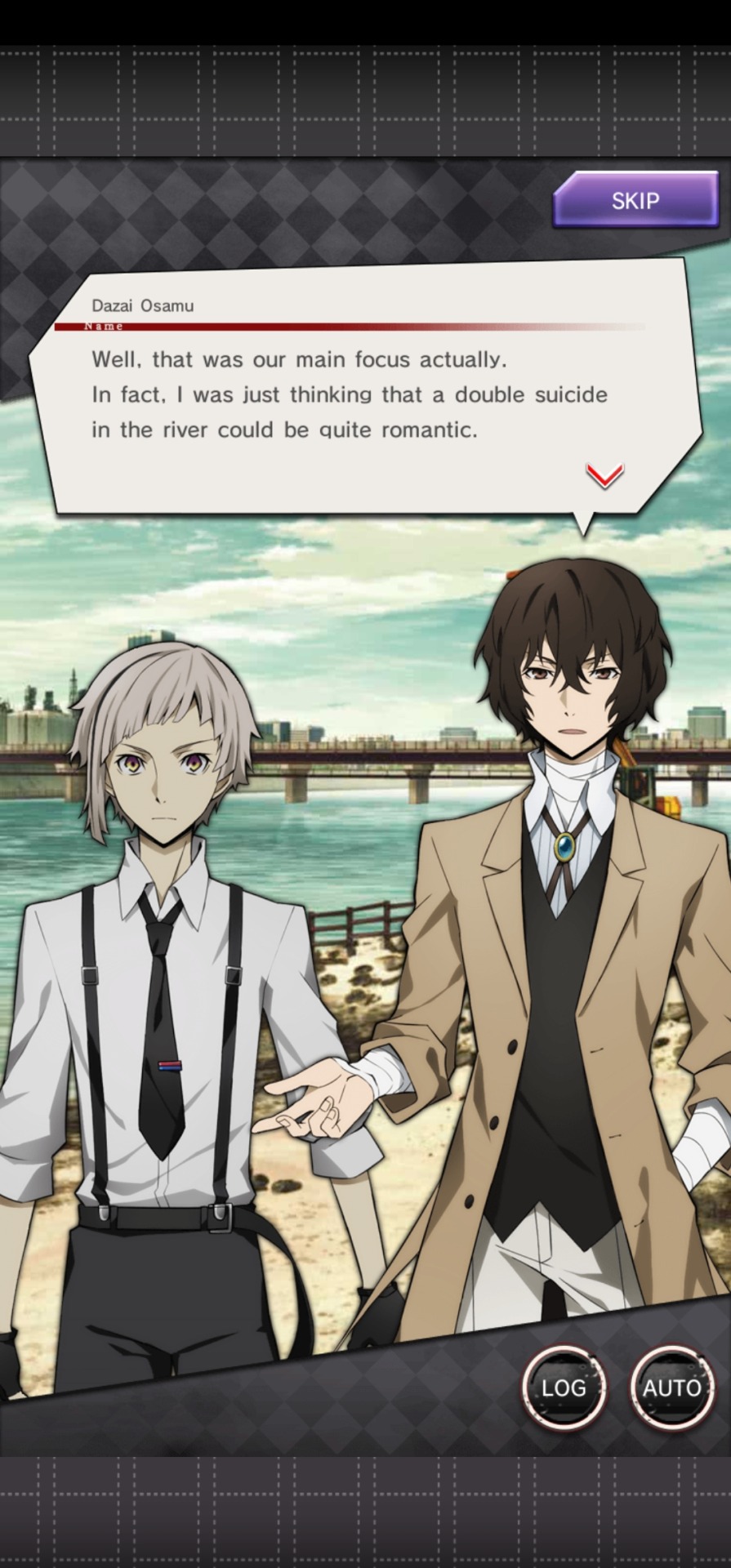
Yeah Dazai, you bring Atsushi to the river and tell him how romantic a double suicide would be there, after you sat down together watching a beautiful scenery with him and saying you would treat him to a drink
122 notes
·
View notes
Text
Comentario sobre “The Moon over the Mountain” por Atsushi Nakajima (Parte 1)

Vale pues hace un tiempo pedí este libro por la curiosidad que surgió en mi mientras disfrutaba de la lectura de las Novelas Ligeras de Bungou Stray Dogs. Además del nacimiento de un fic de la misma franquicia que surgió como una idea al azar y que ha evolucionado al grado de incorporar una serie de datos que fueron investigados y recopilados para crear un mundo con sus propias reglas mientras Atsushi Nakajima y Osamu Dazai luchan contra el destino para estar juntos, en el tiempo que sea, con memorias pasadas o nuevas. La historia aún no ha llegado a su fin, quedan muchos giros argumentales por relatar y lágrimas por derramar.
En fin, que este comentario no se enfocará en cómo ciertos cuentos de este libro se han sumado a incontables teorías y en la manera de abordar ciertos aspectos del fic que estoy creando. No. El siguiente escrito es para compartir con ustedes mis impresiones y ciertas reflexiones que he tenido de la mano de este autor que falleció a la edad de treinta y tres años (1942) por su asma y que creció rodeado de textos de la China antigua de filosofía, historia y literatura.
“The Moon over the Mountain” es un libro que se compone de nueve historias o cuentos, todos ambientados en la mítica China antigua, con su folclor, mitología y principios o valores. Atsushi inicia con el cuento que comparte título con la antología:
The Moon over the Mountain
El relato nos cuenta la vida de Li Zheng, un joven con un futuro prometedor como gobernador que optó por dedicarse a ser un poeta. Para infortunio suyo, este camino lo llevó a vivir desdicha tras de dicha al grado de caer en la pobreza que lo obligó a ir al oeste y aceptar un empleo como oficial local. Su deseo de volverse poeta jamás floreció, provocándole gran desespero e insatisfacción. A esto se le sumaría que, en su nuevo empleo, debía acatar las órdenes de hombre que en el pasado consideró sosos en comparación con él, que en su juventud fue ejemplar.
Al cabo de un año, Li Zheng partir para un negocio oficial, y habiéndose hospedado a la orilla de un río, se volvió loco. Una noche se levantó de su cama y partió del hostal mientras exclamaba incoherencias. Él jamás volvió.
Otro año pasó para que un viejo amigo de Li Zheng, Yuan Can, un inspector imperial, pasó por la zona y escuchó el rumor de un tigre-come hombres. Los lugareños le advirtieron de no adentrarse al territorio, pero Yuan Can hizo caso omiso al ser escoltado por varios de sus hombres y se encaminó por la zona de esta criatura por la noche en la que la luz de la luna casi no alumbraba el camino. Grande fue su sorpresa de ser atacado por la fiera que pronto descubriría que se trataba de Li Zheng que se negó a mostrarse a él y recluirse en un matorral.
Atsushi, entonces, narra una conversación entre estos dos amigos que, por azares del destino, se reencontraron bajo circunstancias inusuales. Li Zheng, aferrándose a la poca humanidad en él quiso hablar con alguien conocido y revela que se ha convertido en un tigre. Aquí les comparto fragmentos traducidos por mí:
“Un año atrás estaba viajando cuando me hospedé en un hostal a orillas del río Ru para pasar la noche. Dormí por un tiempo cuando, de repente, me desperté al escuchar que alguien me llamaba por mi nombre. Salí a la oscuridad, y la voz continuó llamándome. Me encontré a mí mismo corriendo en busca de la voz. Corrí y corrí por el camino que se adentró a una montaña y, antes de que pudiera darme cuenta, me encontré a mí mismo aferrado a la tierra con ambas manos mientras corría. Sentí un poder incommensurable llenando mi cuerpo mientras saltaba con ligereza sobre las rocas. Noté que pelaje estaba comenzando a crecer de mis manos y codos. Después del amanecer, me miré en el río ¡y descubrí que me había convertido en un tigre! Al principio no lo pude creer. Luego pensé que debía estar en un sueño. Después de todo, he tenido experiencias de sueño en los que, mientras sueño, sé que es un sueño. Cuando al final supe que no se trataba de uno, quedé perplejo. Y luego me asusté.” —Li Zheng a Yuan Can.
“[…] Las cosas son impuestas en nosotros, y debemos aceptarlas con paciencia, sin pensarlo demasiado; debemos seguir viviendo, sin saber el porqué. Es nuestro destino como criaturas. Una vez pensé en la muerte. Pero, en ese momento, un conejo pasó corriendo frente a mí y, en un instante, el humano en mí desapareció. Cuando emergió de nuevo, desperté con mi boca manchada de sangre y pelaje de conejo alrededor de mí” —Li Zheng a Yuan Can.
“En realidad, todas las bestias y hombres originalmente fueron algo diferente, de eso estoy seguro. Al principio ellos recuerdan que fueron; luego, gradualmente, ellos olvidan, convencidos que su presente forma jamás fue diferente. […]” —Li Zheng a Yuan Can.
“Era indudable que el talento del poeta era de primera clase, pero había una carencia sutil que mantenía los poemas a un paso de ser de la mejor calidad.” —Pensamiento de Yuan Can al escuchar a Li Zheng recitar los poemas que se sabe de memoria.
“Un momento atrás dije que no sabía porqué terminé en este estado, […] en realidad tengo una idea de la razón. Cuando fui un hombre, evadí el contacto con otros. Las personas pensaron que era arrogante y prepotente. Claro que no estaba exento de mi orgullo basado en mi vieja reputación como prodigio entre los niños de mi pueblo. Pero era un orgullo tímido. Esperé hacerme de un nombre como poeta, pero jamás me acerqué a un maestro o busqué la compañía de otros poetas que pudieron ayudarme a mejorar. […] Pero este fue el resultado de mi orgullo tímido y mi retraimiento desdeñoso. Temiendo no ser una joya, no me esforcé en pulirme; creyendo a medias que podía ser una joya, no pude convivir entre la arcilla común.” —Li Zheng a Yuan Can.
“Se dice que todos nosotros somos adiestradores de nuestras bestias salvajes, y estas son nuestros yo interno. En mi caso, la bestia en mi era mi sentido de vergüenza. Ese era mi tigre, y él me lastimó, trajo aflicción a mi esposa e hijos, lastimó a mis amigos, y, al final, cambió mi exterior a este animal que calza con mi estado interno. Me doy cuenta que desperdicié el poco talento que tenía.” —Li Zheng a Yuan Can.
“Puedo saltar a los cielos o lanzarme al suelo, lamentándome, aun así no hay nadie que pueda entender lo que siento —así como no hubo nadie que comprendiera mi corazón vulnerable cuando fui humano. Si mi pelaje luce húmedo, no es solo por el rocío nocturno…” —Li Zheng a Yuan Can.
Estos fragmentos causaron una gran impresión en mi y me hicieron reflexionar, por instantes, la enseñanza que se quiere transmitir a través de Li Zheng.
El final del relato es con Li Zheng advirtiendo a Yuan Can de que le quedaba poco tiempo para mantener su consciencia humana y que le pedía un último favor (los primeros fueron: escucharlo, escribir los poemas que se sabía de memoria, visitar su familia abandonada y velar por ellos): que cuando llegase a cierto punto del camino, que se detuviera y se girase pues quería demostrarle su actual aspecto. Fue así como Yuan Can vería un tigre blanco bajo la luz de la luna y sería la última vez que hablaría con Li Zheng, pues este le dijo que, seguramente, la siguiente ocasión que se encontrasen, él no lo reconocería.
Para mí, esta historia es una reflexión a querer perseguir nuestros sueño sin buscar ayuda, sin mejorar o aprender de otros, cayendo en un círculo vicioso del sentido del fracaso continuo o crónico. Como si nuestra bestia interna nos fuese devorando poco a poco hasta convertirnos en ella.
No creí que este primer cuento de Atsushi me atraería tanto como para continuar con los ocho restantes y sentir un vacío al no tener más de su prosa a mi alcance.
Así terminamos con la primera parte de este comentario.
1 note
·
View note
Text
Okay! This will be read when insomnia kicks off… or tonight hahaha
I really need answers about this sht Asagiri just keeps running in circles while laughing at us and we just… Dude! Give us answers for god's sake!!
Anyway, thanks beautiful human for sharing this ;u; luv u
The Book: Everything We Know So Far and Possible Connections
The Book's lore is driving me crazy and I had to write this. This isn't meant to be a solid cohesive theory on anything but I wanted to compile everything we know about the Book, some rather disturbing implications of what that might mean, and which characters may or may not have a connection to it, as well as what that connection might be.
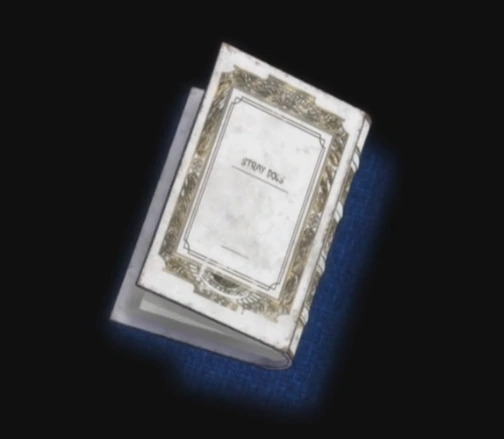
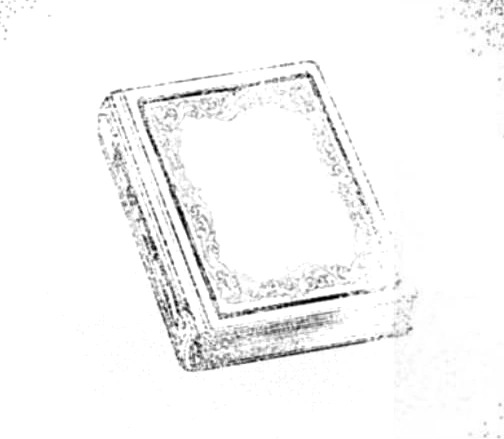
This is a long post, so I've bolded the key info. You can skim those if you don't want to go through everything. :)
***Major spoilers for BSD and for Beast!***
Main Series Information:
The first mentions of the Book occur in Chapter 28, when Fitzgerald tells Atsushi that the Guild's goal is to locate it. He tells Atsushi that only one copy of this book exists, and that neither flames nor abilities can damage it.
Fitzgerald claims he knows the Book is there because a prophet ability user foresaw that it had been sealed within Yokohama. When Atsushi asks what the relation is between him and the Book, Fitzgerald says that Atsushi is the guide to the Book.
In Chapter 35, Fitzgerald states that his goal is to use the Book to bring his daughter back to life.
The next mention is in Chapter 46, when Dazai talks to Fyodor in the alley. Dazai mentions that since Fyodor and the Rats don't have the firepower to burn down Yokohama, he instead needs to exterminate Yokohama's ability users to get to the Book, hence the cannibalism strategy.
Dazai says the true Book is a single novel with blank pages where anything written becomes the truth. Fyodor wishes to use it to make a world without the sin of ability users. Dazai says basically "good luck with that dude" lol. (Actually the line is "Give that a go, if you can, that is." which... might be significant?)
Chapter 58: Taneda dumps a lot of info on Ranpo. His assailant, who we know to be Sigma, stole a page from him, a single page removed from the Book in order to study it. The page has exactly the same capacity to make anything written become reality, it just has limited space to write. However, the Book has a restriction: it requires karmic/narrative consistency.
In Chapter 58.5, Mykola's speech about cages and the freedom of birds is ironically dictated word for word by a mysterious author. The translator note on the unofficial version I'm reading says the mysterious author is using imperfect Japanese with lots of katakana - I cannot confirm this myself, but it has interesting implications on our mystery author's identity if true. The page is used to position the Agency as the terrorists in the white hoods and frame them.
Chapter 59: Ranpo believes the Book was not made by an ability user but by something far greater than that. His proof is that unlike Mushitarou's ability, which can also alter reality, the people affected by the Book also have new memories to fit the alteration to the events. The Agency members remember committing the crime, even though they know they didn't.
In Chapter 70, Mushitarou reveals the DoA plans to use the other side of the page to eliminate the country at the next full moon. I am curious as to the significance of the full moon, given the moon's frequent recurrence in the series and Atsushi's ability connection to it. Chapter 74.5 establishes that the Sky Casino, with its 13 year history, was created 8 days ago when the page was written on, as a base for the next stage and also to "repay" Sigma for the use of his ability to retrieve it. In Chapter 75, Fyodor claims that Sigma, too, was written into existence via the Book 3 years ago - he has no memories before this point.
Chapter 77: the page was written with a condition that no police or law enforcement would believe in the Agency's innocence. However, Tachihara broke through that condition by reaffirming his identity as a member of the Mafia, which (metaphorically) tears the page.
Later references don't tell us too much more but I'll summarize them regardless. Kamui/Fukuchi has the page, which Atsushi knows from Sigma's info. Ranpo made an appeal to the police, explaining that the Agency was framed and the page preventing them from seeing the truth, and half the force sees the truth for themselves, breaking through the page's condition. Ranpo believed the direct opposition to the page's restrictions might sway Fukuchi into believing them (unfortunately, we don't know if this was right, as Fukuchi was not affected in the first place, being Kamui himself). And that's what we have so far.
Disturbing Implication #1: The Special Division knows/knew the location of the Book.
Taneda mentions that a page from the Book was taken to study. This implies that at one point, the Special Division had the Book or knew of its location. The higher ups may still know where it is. There are a few potential timelines here: the first is that the page was removed many, many years earlier, perhaps during the war, and the second is that the page was removed and tested 3 years ago, and Sigma resulted from these trials.
Disturbing Implication #2: Ranpo says the Book was created by something greater.
Something greater than ability users. I suspect this may be something outside their world. At this stage, it seems very likely this "greater entity" is an author - the author of the world we read about (it's Asagiri omg). An author, to the world they write, is akin to a god. I'm kind of joking about the Asagiri thing, but the "author" of the Book is likely someone/something that exists beyond the scope of the world of BSD.
Contradiction: The Book cannot be damaged by flame or ability, but pages can be torn out of it? How?
Beast Information:
Oh boy. Where to even start?
Beast Dazai states that the Book is the origin of the main universe's world, and it contains an infinite number of parallel worlds within it.
"What you write becomes a reality" is actually a misnomer. Writing in the Book calls a parallel world that aligns with what is written directly from the Book. This parallel world will then trade places with the real world.
There is a single physical reality, and infinite possible worlds. The Beast universe exists within the Book, as a possible world.
A version of the Book exists in the Beast universe. However, this Beast version of the Book is more of a weakness. Orders from the real world can overwrite Beast. And anyone who tries to write in Beast's Book will make Beast cease to exist.
Beast Dazai jumps at the end of Beast. This is because if more than 3 people know the truth about the Book, the world will destabilize - it may even disappear without Beast's Book being written in.
Beast Dazai created a singularity using his ability. It's not explained how he did this, but it has something to do with his nullification. He did this to read the memories of real-world/original Dazai - the Dazai who exists outside the Book. (It seems all but given that this is Dazai from the main timeline.)
Though the above conflicts with some of what we know in the main manga, we can take it as fact, I think. The narration is heavy on emphasizing that Beast Dazai is telling no lies in this scene.
Disturbing Implication #3: Any alterations are not inventions but transferrals, which means these events actually occurred in another universe.
This means that the Agency really were the DoA terrorists in a parallel world and they did carry out the plan. They really did take the hostages in this world. Tanizaki really did push the button. This would explain their memories. The caveat of no one in law enforcement believing them might make sense too - they're actually criminals in that world, so they would have no reason to believe them. "Trading places" also implies that the terrorist Agency universe has the terrorists trying to save the hostages like the Agency originally planned to do (potentially).
Sigma is an interesting case. If he really was written into existence from the Book, then he was called from another parallel world - literally displaced from his home. His amnesia likely occurred in that parallel world too.
Disturbing Implication #4: The parallel worlds are more fragile than the main world of BSD.
There is something different about our main universe. The Book that originates here is the real deal. But Beast's (and all the Books from different parallel worlds) leave them vulnerable. These worlds can be destroyed at any time if anyone tries to write in these Books. Only a select number of people can know how it really works before it starts to destabilize. What's more, at any point, someone could write in the real-world's Book and overwrite it entirely, and there would be nothing that any of the people within that world could do about it. And Beast Akutagawa, thinking back on the events of the story, comes to the conclusion that even though his world is "but a shadow", the desires, feelings and actions of the people within it make those people no less real than those in the original.
Beast is a goddamn existential horror.
Character Connections
Now, onto the characters who are known to have some kind of connection to the Book.

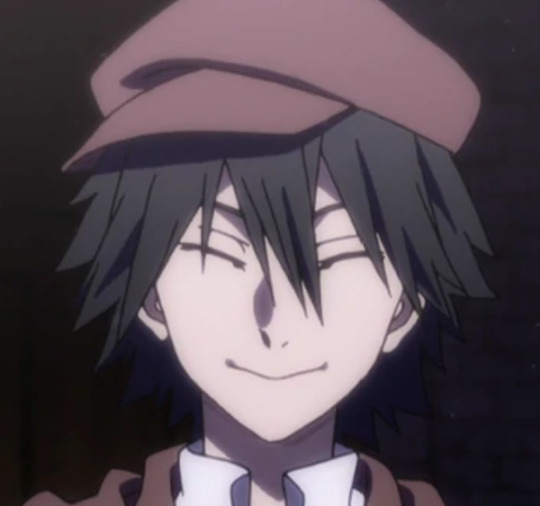

Fitzgerald wanted the Book in the Guild arc to bring back his daughter. While this is the first mention of it, given that he got his info from clearly secondhand sources (the prophet ability user or Fyodor, most likely), I don't think he has any sort of deeper understanding of it, nor a more personal connection. Ranpo seems to be figuring out the Book's logistics rather quickly, but I expect nothing less from the greatest detective, and he doesn't have a strong personal connection I can see as of yet. As for Fukuchi, whatever knowledge he gained 36 years ago might be connected... but again, I have nothing else to say on this front, considering we have little else on this (I'm actually more inclined to think it has to do with the war - which may tie in with the Book, but not necessarily). I would also be very surprised if Mori doesn't know something but I have no real evidence for this other than that the man is suspicious as hell. Then again, there's also Tokoyami Island, which "appeared" seemingly out of nowhere and is where Yosano's backstory took place and Fukuchi headed after his argument with Fukuzawa. It seems possible, if not likely, that it was created with the Book. So, let's go over some characters who we actually can expand on a little.
Taneda
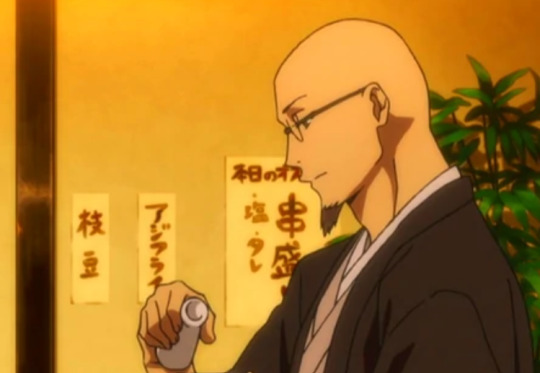
Not much to say here other than what kind of research was being done with the Book? Given that Taneda had the page on him, was he the one responsible for the research being conducted on it, or was he just involved?
What kind of research was being done with the page? How were they testing it? The page was blank, so they must not have created anything with it yet. How then, did Taneda know how it worked and that the page would have the same capacities as the full Book?
Taneda doesn't seem to understand the Book completely - he thinks it was created by an ability user, after all, and like everyone else in the main universe he doesn't know the reason the Book requires narrative consistency (that it is pulling from other worlds, not just making anything written come true).
The Special Division likely had the Book at one point, but by the time Fitzgerald comes to retrieve it, it has been "sealed". Did the Special Division seal it? Why and how?
Atsushi
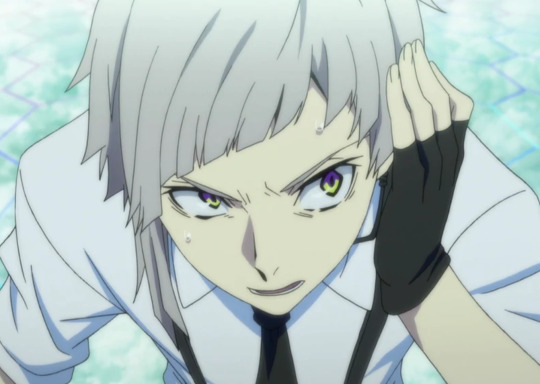
We know he has a lot to do with it. Atsushi and the Book are incredibly intertwined, and the initial conflict was kicked off by a bounty placed on his head for this connection.
He is called the "guide" to the Book. What does that mean? Is he meant to locate it? Unlock the seal? Or is he a guide on how to use it properly?
6 years ago, Shibusawa found Atsushi at the orphanage when he was just a kid and tortured him to extract his ability. He was a researcher who learned about the tiger from Fyodor, who called Atsushi's ability "one that guides the envy of all ability users". And we know Fyodor has been after the Book for a long time, so it's difficult to imagine this does not have something to do with it.
Atsushi is the only character to directly reference a real-life novel in the series and recall reading it. "The head may err but never the blood" and "I only regret what I haven't done" are from the real Nakajima Atsushi's "Light, Wind, and Dreams", a fictionalized autobiography detailing the last few years of the life of Robert Louis Stevenson. While other characters quote their namesakes' fiction on occasion, to my recollection, Atsushi is the only one who explicitly remembers reading the book, but finds himself unable to remember the author's name. Cute reference, or plot significant? You decide.
Atsushi's tiger is heavily associated with the moon, particularly the full moon. For some reason, the other side of the page is to be used at the next full moon and cannot be used sooner. Atsushi's ability crystal, pulled out of him by Shibusawa as a child, is described as "pale and glittering like the moon".
It is entirely unlike the red crystals that form in the Dead Apple separated abilities - including Atsushi's tiger (also red). It is, however, similar to Dazai's, which is white. Atsushi transforms into the tiger to swallow the moon-like crystal - to reiterate, it was outside him when he transformed. What's more, from Beast it's known that this instance was when his ability apparently activated for the first time - how could it do that if it was already removed from him? Later on, Shibusawa tries to take the crystal again and Atsushi's transformation deteriorates, that's true, but bear in mind that Atsushi was convinced that crystal was the tiger, which may have psychologically influenced this. In fact, the moon crystal may not be the tiger at all. It is entirely possible it is something else, and it is likely that which makes Atsushi so sought after. If it is, I refuse to believe this has nothing to do with the Book.
Atsushi's ability is described as the "spark of life that resists all abilities". A reference to his healing factor, perhaps? Or something more meaningful?
He's also referred to as an "angel" by Shibusawa who canonically got his information from Fyodor so... make of that what you will.
Tachihara
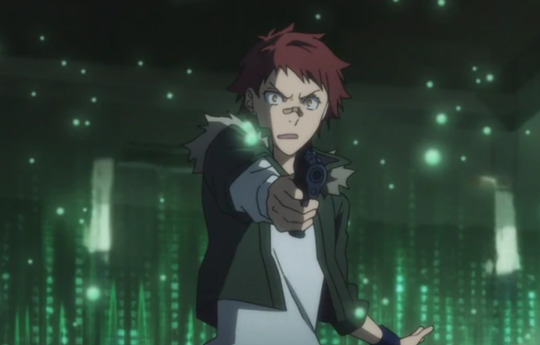
This isn't so much about Tachihara having significance in future but more about what his breaking of the page's conditions might mean.
At the crux of this is his split identity - he's a Hunting Dog, but also a mafioso, and his struggle between these identities is his core conflict in the Sky Casino arc.
Eventually, Tachihara, recalling Hirotsu and Gin's words that anyone in the Mafia knows that the Agency is innocent, frantically realizes they have the wrong culprits, thus breaking through the page's caveat that all law enforcement would never believe them, accompanied by a metaphorical tear in the page.
It's intriguing because we don't see this same dramatic depiction later on with the police when Ranpo appeals to them - Tachihara has changed his expected role from police to mafioso. Tachihara is no longer playing the "character" he was meant to play.
He tore out of that restriction in the story. His story line is now on a different path. There are some serious implications of that if a change in character can literally break people free of the Book's reality-altering influence. It is all-powerful so long as everyone plays their expected role in that narrative. Breaking out of that can change the story, even if only minutely.
Sigma

Of course Sigma is connected. He was apparently written into the Book three years ago - which means he came from one of the parallel worlds. (Provided Fyodor is telling the truth about his origins, but I think it would be very strange narratively if this wasn't - at least partially - true.)
I am curious if Sigma will regain some of his memories soon, or if it is even possible for him. If he can regain memories, then they would be from a world within the Book. Or, perhaps his memories don't exist because that world has been overwritten and no longer exists?
Is it possible for Sigma to communicate between worlds using his exchange of information? Maybe this is completely out of left field... I'm just curious what role Sigma is going to play in all this.
It's strange, for someone so obviously connected I... really don't have much to say about him. I just think we don't have enough.
Mykola
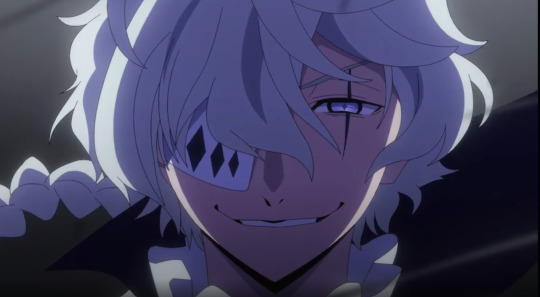
There isn't too much to say for certain about him, but I know I was super uncomfortable with his entire speech about birds and cages and freedom being dictated in real-time by the page. That's rough, buddy.
As of this moment, he's supposed to be dead, but somehow defied his fate and is still alive. He decided not to play the role ("character") he was previously meant to, and now he is the cast's biggest wildcard.
Mykola's fixation on freedom at all costs may have some interesting implications for his interactions with the idea of the Book. When his words were written on the page, was the page dictating his speech, or was it merely recording what he was already saying? If the Book is the story, then does the story control the characters, or, as it has been implied by Mykola and Tachihara, can the characters defy the story? When they defy the story, the story changes to accommodate this. Have they really, then, defied anything of significance at all? (For clarity: I don't know if this is where BSD will go with it - in actuality, I'm always confused when people theorize the Book's author is evil and controlling, or that the series will end tragically, given how much BSD loves to emphasize the importance of writing and reading and understanding and living. This is just an example of a few possible questions it may make sense for Mykola to fixate on.)
I don't have a lot to say for certain, but given his need to be free, his connection with Fyodor, and his Dazai-foiling traits, I'd think it very odd if he wasn't involved to some extent.
Dazai
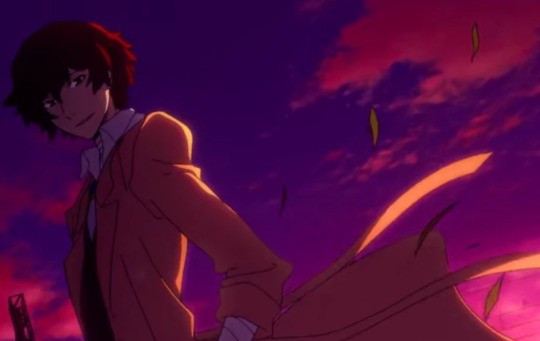
...where to even start.
Dazai clearly knows things about the Book. He appears to know much of what Fyodor does, and it makes me curious as to whether it came up when they first met (whenever that was).
However, main series Dazai doesn't seem to have all the info Beast Dazai does. For one thing, he too echoes that the Book makes all that is written into it become reality. He may know about the parallel worlds within it and could just be lying by omission, but I've seen very little to suggest that this is the case.
Main series Dazai appears to know about certain events long before they occur (not everything though; I need to remind people that he can and has been thrown off/wrong about things before) - notably, most of these planned events revolve around Fyodor. He's been preparing Atsushi and Akutagawa specifically to deal with the upcoming threat posed by Fyodor's pursuit of the Book.
Beast Dazai was somehow able to read the memories of real-world Dazai by creating a singularity with his ability... somehow. It's assumed he must've created it while in contact with the Book (otherwise how else could he have read the memories) but it's actually not elaborated on and we still have little to no details.
If his nullification caused a singularity, then how? Was it a singularity with the Book? Himself? Whatever the Book was sealed with/in? Singularities are still quite mysterious, but they need to involve one of two things - an insurmountable contradiction, or an uncontrollable increase in power with no way to cap it. Given that nullification doesn't lend itself to an increase in anything, it's likely an inherent contradiction.
I think it pretty obvious that Dazai has some special knowledge of the Book; some connection to it. He's been preparing to combat Fyodor for many, many years, and he seems to want to take Fyodor out as quickly as possible. Clearly, his potential use of the Book is a big deal to Dazai and worth putting his full effort into preventing, which is a little odd, honestly, considering he only met him once before the events of Dead Apple. Fyodor must've really made a terrible impression on him.
Where did he come from? There's that post about how Dazai is in everyone else's backstory for some reason, but we don't know his yet. Here's what we do know: He has some kind of connection with the Old Mafia Boss. He wandered around Yokohama for awhile. He's not related to Mori or an orphan he picked up.
While I've seen suggestions that Dazai met Fyodor in the 2 year gap between his leaving the Mafia and joining the ADA, I think there's reason to suggest he may have met Fyodor before he ever joined the Mafia, as a young child. Just bringing it up as a possibility because Beast Dazai's forming of a singularity with it sounded intentional - which means at 16, he would already have known what the Book was. Did he get his knowledge from Fyodor? Someone else?
Why did young Dazai become so listless and unable to find a reason to live? How did he become convinced that he will lose everything he wants so badly to keep when he gets it? Why did he think he could predict everything in advance? Is it just his intelligence and observation? Or is there more to it than that?
While I'm not a huge fan of the "Dazai is the Book" theory (given that it would make him literally inhuman, which I think runs antithetical to his story), on reviewing all this I've come up with a new incredibly deranged and not-at-all-sound theory:
Dazai is the Book's seal. In this essay I will -
Fyodor

First of all, we know hardly anything about him. We don't understand his ability. We don't even know how old he is. He's been with V/the Decay of the Angel for many years apparently... he was involved in Shibusawa's actions... he has some kind of a history with Dazai... he perfected the art of dramatically standing on windy roofs... truly, he's an enigma.
On a more serious note, all we know is that he wants the Book to create a world free of ability users. Free of sin.
This doesn't seem to fully align with Fukuchi's goal. My proof? They have differing concepts of "angels".
Fukuchi's "angels" borrow from the Buddhist concept of Devas and also likely references Mishima Yukio's The Decay of the Angel. Fukuchi tells Tachihara that the angels are the politicians who remain in their lofty seats and send soldiers into war to die. His goal isn't revenge per se, but it does appear to involve dethroning them in a sense. He doesn't mention wiping out ability users nor of having any particular ill-will towards them.
However, Fyodor's concept is closer to the Abrahamic concept of angel, what with the numerous references to original sin, the script for the play in Untold Origins speaking of angels banished by God for their sins, etc. What's interesting is that the play emphasizes ability users as "angels" who have regained some of their prior powers (I find it difficult to believe Fyodor was not involved in the creation of this) - so Fyodor's "sinful angels" are likely ability users. What does this mean for their goals? Are they still aligned? Is the undermining of government necessary for the elimination of ability users? (Also quick note: do not quote me on any religious stuff - I am not religious myself. I do research sometimes but I'm very, very far from an expert ahaha.)
So, now: Cannibalism was part 1 of the DoA's plan, and all the ensuing stages will culminate in the use of the other side of the page.
Firstly, there's the obvious "what will the other side of the page be used for?"
But then there's something else. By the time Cannibalism occurred, the pieces were already in place for the next phase of the plan, where Sigma would steal the page from Taneda. Why then, does Fyodor still claim, on numerous occasions, to be after the Book? The page should be able to accomplish anything the Book can. Either there is something misleading in the information we have been told, or there is something he wants to do with the Book that isn't writing in it. I think the former is more likely but I digress, the latter is still a possibility.
A few more outstanding questions: Why was he spreading info on Atsushi to Shibusawa and presumably Fitzgerald, but not going after Atsushi himself? Wouldn't he want Atsushi as the Book's guide?
What is his connection to the prophet ability user Fitzgerald mentioned - is it him, with his uncanny predictive powers? Is it someone else associated with the DoA? Is it someone in the government? How long ago was this prediction made - was it made long enough ago that this is why V was active in Yokohama?
There's a lot that's very confusing about Fyodor, and I don't think we know nearly enough about him to make proper predictions as to his relation to the Book yet.
Akutagawa
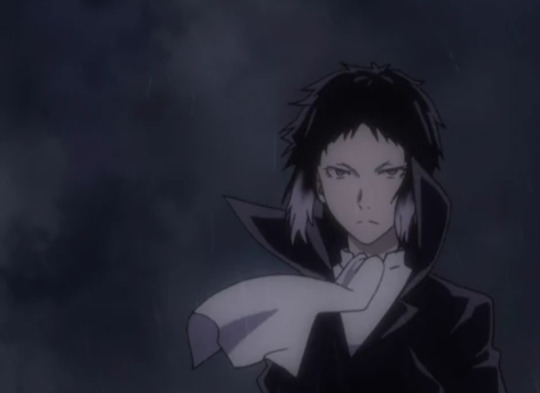
He's only really tangentially related to it through his connection to Atsushi - if any showdown is going to happen involving the Book, you can bet he and Akutagawa will be teaming up for that.
At the same time, Dazai selected Akutagawa as a mentee a long time ago, and he's been planning for them to work together since he met Atsushi, specifically so they can prevent Fyodor from achieving his goals. In Beast, he mentions their abilities form a singularity together - likely that ability to "cut through anything".
I know this may be entirely wild and out of left field but if it can cut through anything... could it damage the impervious Book? Could it even destroy it? Or maybe it could destroy whatever is sealing it? Who knows, but it makes me think they're going to have to destroy something. (Interesting how this runs counter to sskk's need to act as protectors of the Book in Beast... so maybe it will be in defense. It's all so unclear.)
There's also the whole "dragon is the manifestation of the chaos of ability users". Atsushi and Akutagawa are the tiger and the dragon, at odds with each other via rivalry but also in balance. I think it would be very strange if Atsushi's ability were unusual but not Akutagawa's.
In addition to all the above, I am also side-eyeing all the author characters in this series. For one thing, there's very few of them. For another, two of them have died, changing the path of their respective best friends' lives - and in a series that actually... doesn't kill that many named characters off permanently, it's worth taking a look at.

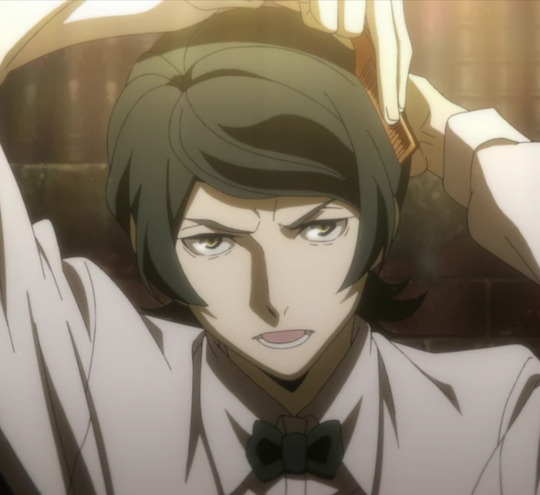
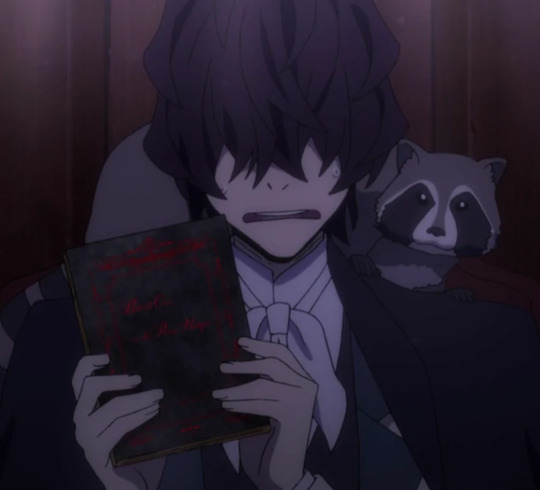
Yokomizo wanted to transcend the boundaries of fiction in his writing to create a mystery that bled into reality - the ultimate mystery. Mushitarou writes to see his friend again, to connect with him through his greatest passion. Poe's ability allows him to take real people and pull them into constructed narratives that can be escaped once they are "solved" - when the story reaches its conclusion. He is also the one who spurs Mushitarou into writing to cope with his loss.
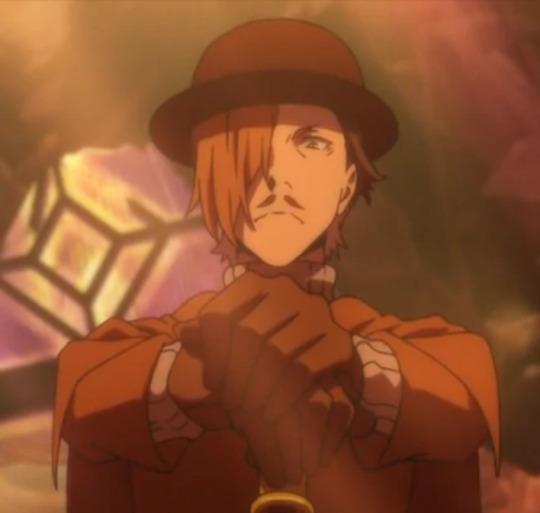
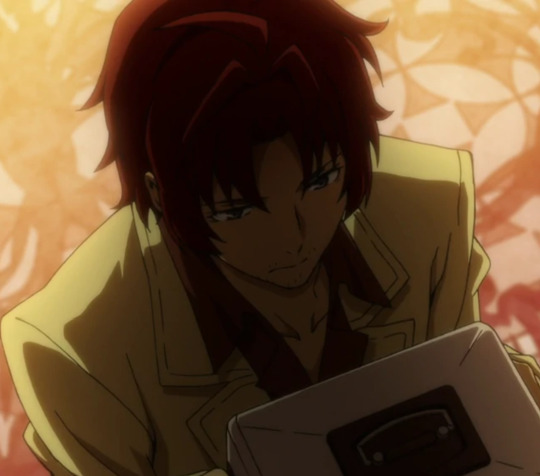
Natsume wrote a few books as well. We don't know completely what they were about (and from my brief research they don't seem to correspond perfectly to his real life novels - might be a reference to Kokoro but the story does not appear to be the same...), but at least one was a series of three novels, with the last featuring an assassin who stopped killing, but Natsume derided these books and said they were not very good. He tore out the last few pages from the third, final book that explained why the assassin changed his path, and gave the book to a young Odasaku with a note "Don't blame me if you regret [reading] it".
Odasaku wanted to complete that novel. It completely changed his perspective on the world and opened his eyes - he re-read it multiple times (if I remember correctly, he also read it over and over to a wounded and exasperated Dazai in TDIPUD lol), and the lack of an ending bothered him immensely, not just because the story was incomplete, but because the scene was necessary to understanding the assassin's character. Odasaku wrote to understand himself and others, because writing novels is writing people. Natsume seemed to think he was uniquely qualified to do so, but Odasaku disagreed, thinking that someone who took lives was in no position to write about them - to understand them.
Odasaku dies. In every universe, and before he gets the chance to write the novel that sits in his mind - except in Beast, where Dazai painstakingly maintained the world to ensure he stayed alive. It seems oddly specific that this one random person should die before having the opportunity to write the story he wished... and I have to wonder if the universe really doesn't want him writing that book for some reason. And if that's the case, then is there any reason (beyond saving Oda from killing) why Natsume encouraged him to do so?
As a bonus, in the anime, Odasaku is the one to title drop "to the stray dogs" as a cheers, which Dazai will later echo. This doesn't happen in the novel... but if you look back at the difference between the anime Book and the manga Book - you'll notice the manga Book's cover is blank. The anime's says "Stray Dogs". Could be something, could be nothing. But it's worth mentioning.
And that's pretty much it for now! As we get more info, I'll continue to update this post. If anything here gives you ideas, please feel free to ramble about it in the tags or comments, or shoot me an ask! I love to read all your thoughts. :)
1K notes
·
View notes
Text
I’m in my hyper fixation phase so… bear with me this Shin Godzilla phase 😎
Just learned that some of the concepts for Shin Godzilla's final omnipotent god form would have been its flesh sloughing off and revealing a giant ethereal lady.
Never change Hideaki Anno.
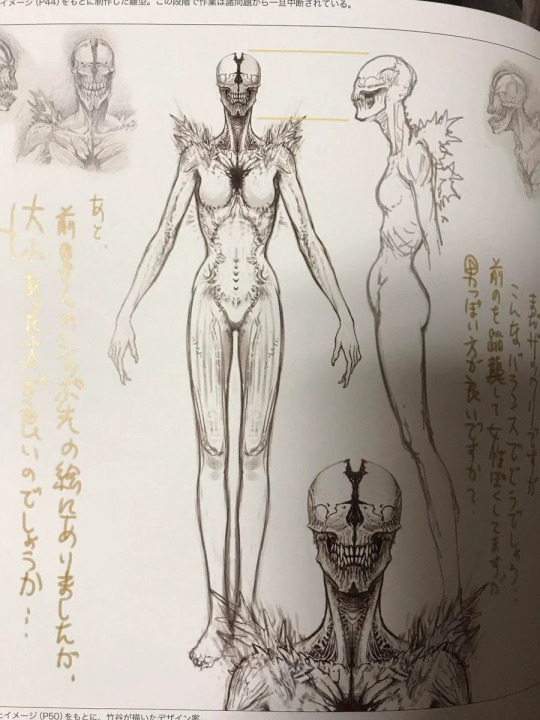
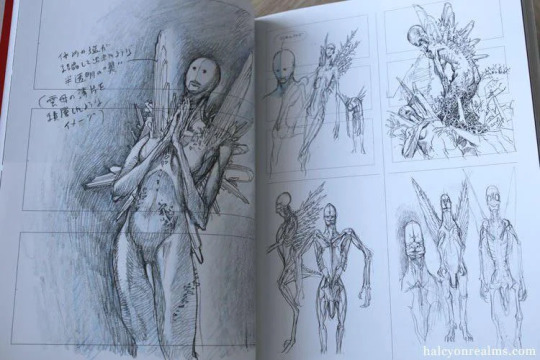

4K notes
·
View notes